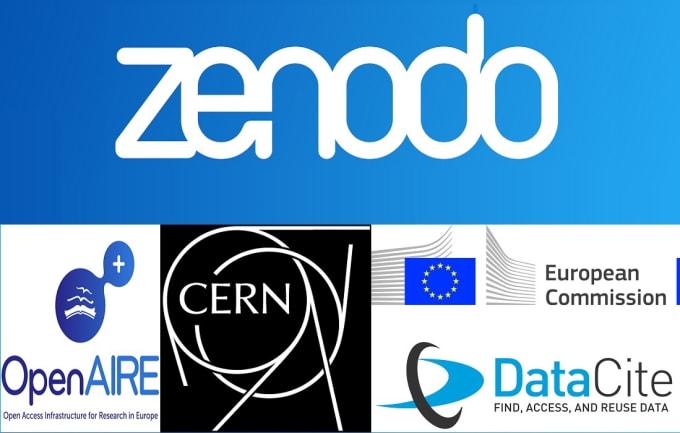Understanding Parental Perspectives on Childhood Vaccines: Examining Attitudes and Behaviors of Parents with Young Children
Understanding Parental Perspectives on Childhood Vaccines
DOI:
https://doi.org/10.5281/zenodo.10891274Keywords:
A, vaccine hesitancy, parents, vaccination, trustAbstract
Abstract
Introduction
Vaccine hesitancy is a current and global problem. In order to increase social acceptance of vaccination, it is recommended to determine the local situation and propose solutions per cultural norms. Studies have shown that vaccine hesitancy is a steerable situation and that the bond of trust between the health worker and the parent increases vaccine acceptance. In our study, we aimed to examine the attitudes and behaviors of participating parents regarding childhood vaccines.
Material and Method
The study population was home-parents with children aged 0-24 months who agreed to participate by snowball sampling method. Participants completed the "Parental Attitudes Towards Childhood Vaccinations" scale (Bulun et al.) and sociodemographic data form online. An information form was sent to all participants, and informed consent was obtained.
Study permission was obtained from the Istanbul Medipol University ethics committee on 22.03.2022 with the number E-10840098-772.02-1923.
Results
A total of 138 participants were reached online. Of the parents reached, 87.76% (n:86) were mothers, and 66.33% (n:65) had one child. 95.88% (n:93) of the participants reported being married. 53.61% (n:52) of the participants had completed undergraduate education. 98 questionnaires with appropriate age groups and complete answers were evaluated. The number of participants who decided not to vaccinate was 16 (16.33%), while 10 (10%) participants stated that they postponed vaccination. 73% (n: 72) of the participants thought vaccination was more effective than natural immunization. 69.38% (n: 68) of the participants reported trusting the information they received about vaccines. Again, 69.38% (n:68) of the participants reported that they could openly discuss their concerns about vaccines with healthcare professionals. 63% of the participants stated they had no hesitation about childhood vaccines. All participants reported that they would get vaccinated when they had other children. When asked about the sources of information about childhood vaccines, 92.78% (n: 90) of the participants stated that they obtained information from healthcare professionals. In comparison, 53.61% (n: 52) of the participants reported using online sources.
Discussion/Conclusion:
Numerous studies have highlighted that vaccine ambivalence, recognized as a major global issue, can be addressed effectively through collaborative efforts with families via non-judgemental, empathic, supportive, and tailor-made family interviews with solution-oriented approaches. Our study group observed that the concerns raised align with the literature, although epidemiological studies in our country remain limited. When attempting to find scientific solutions by comprehending the family's concerns, it is crucial to reassess the situation during each interaction and persistently pursue solutions with patience, especially regarding child health and societal impacts.
Key Words: Vaccination Hesitancy, Parents, Vaccination, Trust
Downloads
References
References
Dubé E, Laberge C, Guay M, Bramadat P, Roy R, Bettinger J. Vaccine hesitancy: An overview. Vol. 9, Human Vaccines and Immunotherapeutics. 2013. p. 1763–73.
Domek GJ, O’Leary ST, Bull S, Bronsert M, Contreras-Roldan IL, Bolaños Ventura GA, et al. Measuring vaccine hesitancy: Field testing the WHO SAGE Working Group on Vaccine Hesitancy survey tool in Guatemala. Vaccine. 2018 Aug 23;36(35):5273–81.
Lane S, MacDonald NE, Marti M, Dumolard L. Vaccine hesitancy around the globe: Analysis of three years of WHO/UNICEF Joint Reporting Form data-2015–2017. Vaccine. 2018 Jun 18;36(26):3861–7.
Facciolà A, Visalli G, Orlando A, Bertuccio MP, Spataro P, Squeri R, et al. Vaccine hesitancy: An overview on parents’ opinions about vaccination and possible reasons of vaccine refusal. Journal of Public Health Research. 2019.
Napolitano F, D’Alessandro A, Angelillo IF. Investigating Italian parents’ vaccine hesitancy: A cross-sectional survey. Hum Vaccin Immunother. 2018 Jul 3;14(7):1558–65.
Majid U, Ahmad M. The Factors That Promote Vaccine Hesitancy, Rejection, or Delay in Parents. Qual Health Res. 2020 Sep 1;30(11):1762–76.
Bianco A, Mascaro V, Zucco R, Pavia M. Parent perspectives on childhood vaccination: How to deal with vaccine hesitancy and refusal? Vaccine. 2019 Feb 8;37(7):984–90.
Yui M, Chow K, Danchin M, Willaby HW, Pemberton S, Leask J. Parental attitudes, beliefs, behaviours and concerns towards childhood vaccinations in Australia: A national online survey [Internet]. Vol. 46. 2017. Available from: www.abs.gov.au/websitedbs/d3310114.nsf/home/Population%20Pyramid%20-%20Australia
Di Pietro ML, Poscia A, Teleman AA, Maged D, Ricciardi W. Vaccine hesitancy: Parental, professional and public responsibility. Ann Ist Super Sanita. 2017;53(2):157–62.
Goldstein S, MacDonald NE, Guirguis S, Eskola J, Liang X, Chaudhuri M, et al. Health communication and vaccine hesitancy. Vaccine. 2015 Aug 14;33(34):4212–4.
McGregor S, Goldman RD. Determinants of parental vaccine hesitancy. Canadian Family Physician. 2021 May 1;67(5):339–41.
Gagnon D, Zhou Z. 23:31 Parental Vaccine Hesitancy in Quebec (Canada)-PLOS Currents Outbreaks [Internet]. 2023. Available from: https://currents.plos.org/outbreaks/article/parental-vaccine-hesitancy-in-quebec-canada/2/14
Olson O, Berry C, Kumar N. Addressing parental vaccine hesitancy towards childhood vaccines in the united states: A systematic literature review of communication interventions and strategies. Vol. 8, Vaccines. MDPI AG; 2020. p. 1–25.
Opel DJ, Taylor JA, Mangione-Smith R, Solomon C, Zhao C, Catz S, et al. Validity and reliability of a survey to identify vaccine-hesitant parents. Vaccine. 2011 Sep 2;29(38):6598–605.
Opel DJ, Mangione-Smith R, Taylor JA, Korfiatis C, Wiese C, Catz S, et al. Development of a survey to identify vaccine-hesitant parents: The parent attitudes about childhood vaccines survey. Hum Vaccin. 2011;7(4).
Ataseven Bulun M, Acuner D. Turkish Adaptation and Reliability and Validity Study of Parent Attitudes About Childhood Vaccines Survey. The Journal of Pediatric Research. 2020 Jul 8;7(4):323–30.
Giambi C, Fabiani M, D’Ancona F, Ferrara L, Fiacchini D, Gallo T, et al. Parental vaccine hesitancy in Italy – Results from a national survey. Vaccine. 2018 Feb 1;36(6):779–87.
Marti M, De Cola M, MacDonald NE, Dumolard L, Duclos P. Assessments of global drivers of vaccine hesitancy in 2014 - Looking beyond safety concerns. PLoS One. 2017 Mar 1;12(3).
Downloads
Published
How to Cite
Issue
Section
License
Copyright (c) 2024 Chronicles of Precision Medical Researchers

This work is licensed under a Creative Commons Attribution-NonCommercial-ShareAlike 4.0 International License.





